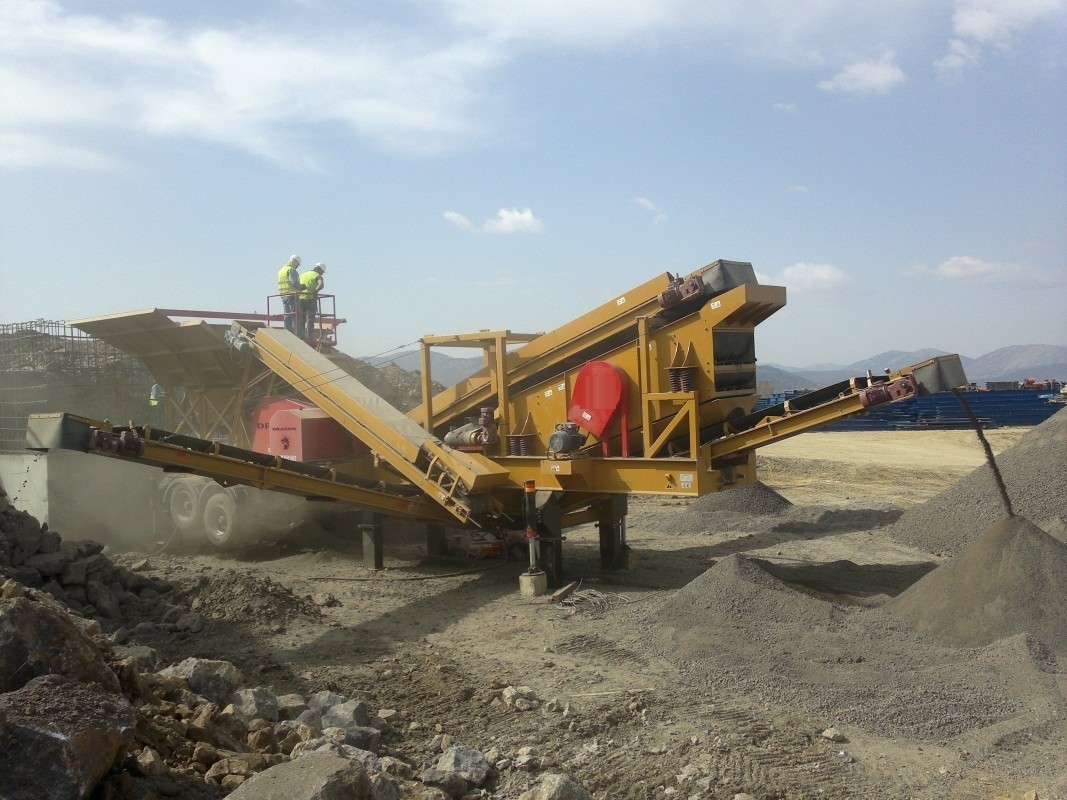Detailed Text About the Crushing Capacities of Mobile Crushers
Mobile crushers are high-efficiency machines used in quarries and mining sites, designed specifically for crushing stones into different sizes suitable for construction, infrastructure, and other industrial needs. The crushing capacity of mobile crushers varies depending on a number of factors, including the technology used, the design of the machine, the power source, the crushing method, and the properties of the material being processed.
Determining Crushing Capacity
Several key factors affect the crushing capacity of mobile crushers:
-
Capacity: The capacity of mobile crushers is typically measured in tons per hour (t/h). This refers to the amount of material the machine can crush in one hour. The capacity can vary depending on the type of crusher used (primary, secondary, tertiary). For instance, primary crushers break stones into larger chunks, while secondary crushers aim to create smaller sizes.
-
Crusher Type: The type of crushers used in mobile plants directly affects capacity. Jaw crushers, impact crushers, and cone crushers are used for different stages of the crushing process, each having different capacities. Jaw crushers are generally used for the first stage of crushing, while impact crushers are preferred for finer materials.
-
Hardness and Size of the Material: The hardness and size of the material being crushed affect the machine's capacity. Harder stones are more challenging to crush, which can limit the capacity of the machine. Additionally, larger stones require more energy and time to break down.
-
Power Source: The energy source used in mobile crushers also affects the capacity. Diesel engines, electric motors, or hybrid systems can all enhance the efficiency of the machine. A more powerful energy source results in higher crushing capacity.
-
Machine Design and Efficiency: The design and technology used in the machine play a critical role in determining the crushing capacity. An efficient design allows for faster, higher-volume crushing, while the shape and size of the stones can also influence the process.
Applications of Mobile Crushers
Mobile crushers have a wide range of uses in quarries and construction sites. These machines are typically used for breaking rocks into sizes suitable for aggregate production. Mobile crushers can be equipped with various screening systems to adjust the size of the crushed material. These machines can be customized to meet different processing needs.
Example Crusher Capacities:
-
Primary Crusher: Can have a capacity ranging from 100 to 500 t/h.
-
Secondary Crusher: Typically operates within the range of 50 to 400 t/h.
-
Tertiary Crusher: Generally has a capacity ranging from 30 to 200 t/h.
Conclusion
Mobile crushers play a crucial role in the mining and construction industries. Crushing capacity varies depending on the efficiency of the machine, the power source, material characteristics, and the type of crusher used. These machines are designed to crush materials into specific sizes that are used in construction and infrastructure projects. Developments in the design of mobile crushers have led to improved efficiency and increased capacity.
 English
English
 Le français
Le français
 Türkçe
Türkçe

